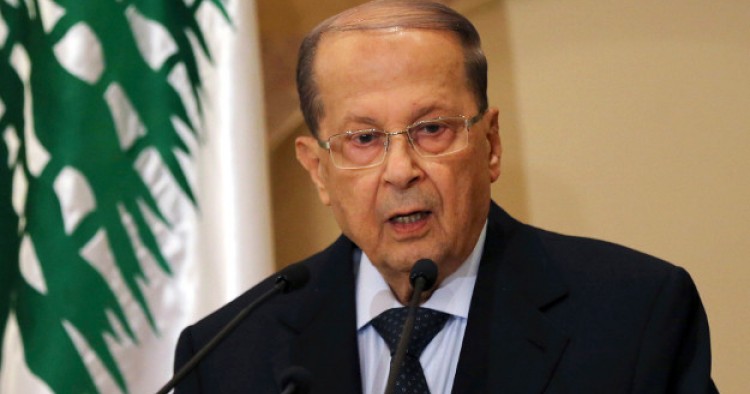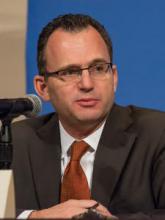In this week's Monday Briefing, MEI experts Paul Salem and Charles Lister provide analysis on recent and upcoming events including the expected election of Michel Aoun as president of Lebanon and the operation to expel ISIS from Mosul.
Lebanon Set to Elect President Aoun
Paul Salem, Vice President for Policy and Research
After two and half years since the post of president fell vacant, Lebanon’s parliament is expected to meet next Monday to elect Michel Aoun to the post. Aoun had been one of the nominees of the so-called March 8 coalition that is dominated by Hezbollah and is aligned with Iran and Syria’s Assad regime. His candidacy gained momentum when Saad Hariri, leader of the opposing March 14 coalition, nominated him after exhausting most other options. In return for his support, Hariri has been promised the position of prime minister. He needs this position to shore up both his political and financial fortunes which have been flagging. Hezbollah leader Hassan Nasrallah has confirmed that his party will vote for Aoun and accept Hariri as prime minister, while other members of the March 8 coalition, parliament speaker Nabih Berri and former presidential rival Suleiman Franjiyeh, so far say they will not vote for Aoun, but will not block his election.
Aoun’s election is a clear victory for the pro-Iranian axis in the Levant and another climb down for Saudi Arabia. On the other hand, Hezbollah and its allies might not be too comfortable with the prospect of an Aoun presidency given his track record. Aoun is notoriously mercurial and was an opponent of Hezbollah and the Assad regime in the 1980s and 1990s before he became an ally in 2005. At a more mundane level, the filling of the post of president will breathe some life, however stale, into Lebanon’s political institutions that have been atrophying dangerously in recent years. His election should be followed by the formation of a new government, and then the holding of long overdue parliamentary elections.
Steady Progress in Mosul
Charles Lister, Senior Fellow
While the battle for Mosul has made slow but steady progress, ISIS’ determination to defend and distract has been amply demonstrated in recent days. A maelstrom of Iraqi state and sub-state forces have thus far captured at least 50 villages from ISIS around Mosul, but have faced dozens of suicide vehicle bombs, roads riddled with IEDs, and capable snipers positioned on elevated positions. Such irregular defensive tactics pose a challenge to even the most capable armed forces.
More significantly, ISIS has demonstrated a continued capacity to launch sustained assault operations elsewhere in Iraq, to distract attention and divert enemy forces from the Mosul fight. Roughly 100 Iraqi security force personnel were killed in the jihadi group’s days-long attack on Kirkuk, which included a sabotage operation on a sulphur plant that forced the U.S. military to hurriedly distribute 25,000 gas masks in the surrounding region. Hundreds of kilometers south, ISIS also captured the town of al-Rutba, located in close proximity to the Jordanian and Syrian borders.
None of this will prevent the eventual liberation of Mosul, but ISIS knows that by prolonging the battle and straining its adversaries’ forces, it stands a chance of sowing divisions within their ranks. The harder the battle for the city’s periphery, the more likely it is that divisive ethnic or sectarian actors will force their way onto the frontlines. As it has done to terrifying effect in the past, ISIS will do all it can to break up Iraq’s delicate coalition. We may win Mosul, but the aftermath will provide ISIS with invaluable opportunities.
The Middle East Institute (MEI) is an independent, non-partisan, non-for-profit, educational organization. It does not engage in advocacy and its scholars’ opinions are their own. MEI welcomes financial donations, but retains sole editorial control over its work and its publications reflect only the authors’ views. For a listing of MEI donors, please click here.















